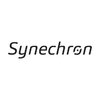Filter interviews by
EPAM Systems Senior Java Developer Interview Questions and Answers
13 Interview questions
Tree set is a sorted set implementation based on a binary search tree.
Tree set stores elements in sorted order using a binary search tree
It does not allow duplicate elements
Operations like add, remove, and search have O(log n) time complexity
Example: TreeSet<String> treeSet = new TreeSet<>();
Use Stream API to find the kth largest element in an array of strings.
Convert array of strings to Stream
Sort the Stream in reverse order
Skip k-1 elements and get the kth element
Use SQL query to find highest salary of employee in each department
Use GROUP BY clause to group by department
Use MAX() function to find highest salary in each group
Join the employee table with department table to get department information
HashMap in Java 8 uses an array of linked lists to store key-value pairs, with bucketing and resizing for efficient retrieval.
HashMap internally uses an array of linked lists to store key-value pairs
Each element in the array is a bucket, and each bucket can have multiple entries
Hashing is used to determine the index of the array where the key-value pair will be stored
In case of hash collisions, entries are stored ...
What people are saying about EPAM Systems





Java 8 introduced features like lambda expressions, functional interfaces, streams, and default methods.
Lambda expressions allow you to pass functionality as an argument to a method.
Functional interfaces have a single abstract method and can be used with lambda expressions.
Streams provide a way to work with sequences of elements and perform aggregate operations.
Default methods allow interfaces to have method imple...
Code becomes less maintainable and can lead to unexpected behavior.
Violates the principle of substitutability, leading to unexpected behavior in subclasses.
May result in code that is harder to understand and maintain.
Can lead to bugs and errors that are difficult to trace back to the violation of the principle.
Example: If a subclass overrides a method in a way that changes its behavior significantly, it can break ...
Other principles for best coding practices include DRY, KISS, YAGNI, and design patterns.
DRY (Don't Repeat Yourself) - Avoid duplicating code by creating reusable functions or classes.
KISS (Keep It Simple, Stupid) - Write simple and easy-to-understand code rather than overcomplicating it.
YAGNI (You Aren't Gonna Need It) - Only implement functionality that is needed at the present moment, avoiding unnecessary featu...
Time complexities of data structures vary based on operations like insertion, deletion, search, etc.
Arrays - O(1) for access, O(n) for insertion/deletion
Linked Lists - O(n) for access, O(1) for insertion/deletion at head/tail
Stacks - O(1) for push/pop operations
Queues - O(1) for enqueue/dequeue operations
Hash Tables - O(1) for average case search/insert/delete
Binary Trees - O(log n) for search/insert/delete in bal...
D stands for Dependency Inversion Principle in SOLID principles.
High-level modules should not depend on low-level modules. Both should depend on abstractions.
Abstractions should not depend on details. Details should depend on abstractions.
Example: Using interfaces to decouple classes and allow for easier testing and maintenance.
Encapsulation focuses on hiding the internal state of an object, while abstraction focuses on showing only the necessary details of an object.
Encapsulation is the concept of bundling the data (attributes) and methods (behaviors) that operate on the data into a single unit (class).
Abstraction is the concept of hiding the implementation details and showing only the necessary features of an object.
Encapsulation helps...
EPAM Systems Senior Java Developer Interview Experiences
8 interviews found
(10 Questions)
- Q1. Find the kth Largest element of array using Stream API (java 8)
- Ans.
Use Stream API to find the kth largest element in an array of strings.
Convert array of strings to Stream
Sort the Stream in reverse order
Skip k-1 elements and get the kth element
- Q2. SQL Query to find highest salary of employee in each department
- Ans.
Use SQL query to find highest salary of employee in each department
Use GROUP BY clause to group by department
Use MAX() function to find highest salary in each group
Join the employee table with department table to get department information
- Q3. Threads, Race condition in thread
- Q4. Hibernate Object Lifecycle
- Q5. What features were introduced in Java 8?
- Ans.
Java 8 introduced features like lambda expressions, functional interfaces, streams, and default methods.
Lambda expressions allow you to pass functionality as an argument to a method.
Functional interfaces have a single abstract method and can be used with lambda expressions.
Streams provide a way to work with sequences of elements and perform aggregate operations.
Default methods allow interfaces to have method implementa...
- Q6. Internal working of hashmap in Java 8?
- Ans.
HashMap in Java 8 uses an array of linked lists to store key-value pairs, with bucketing and resizing for efficient retrieval.
HashMap internally uses an array of linked lists to store key-value pairs
Each element in the array is a bucket, and each bucket can have multiple entries
Hashing is used to determine the index of the array where the key-value pair will be stored
In case of hash collisions, entries are stored in a ...
- Q7. ACID Properties, SOLID Properties
- Q8. What happens when the Liskov Substitution principle breaks?
- Ans.
Code becomes less maintainable and can lead to unexpected behavior.
Violates the principle of substitutability, leading to unexpected behavior in subclasses.
May result in code that is harder to understand and maintain.
Can lead to bugs and errors that are difficult to trace back to the violation of the principle.
Example: If a subclass overrides a method in a way that changes its behavior significantly, it can break the L...
- Q9. AWS services worked on? Features of AWS?
- Ans.
Worked on AWS services like EC2, S3, RDS, Lambda, and more. Familiar with features like scalability, security, and cost-effectiveness.
Worked on EC2 for scalable computing power
Utilized S3 for secure and durable storage
Managed RDS for relational database management
Implemented Lambda for serverless computing
Familiar with features like scalability, security, and cost-effectiveness
- Q10. Encapsulation vs Abstraction?
- Ans.
Encapsulation focuses on hiding the internal state of an object, while abstraction focuses on showing only the necessary details of an object.
Encapsulation is the concept of bundling the data (attributes) and methods (behaviors) that operate on the data into a single unit (class).
Abstraction is the concept of hiding the implementation details and showing only the necessary features of an object.
Encapsulation helps in d...
Interview Preparation Tips
Skills evaluated in this interview
I applied via LinkedIn
(5 Questions)
- Q1. What is equals and hashcode and does Object class implement equals method ?
- Ans.
equals and hashcode are methods in Java used for comparing objects and generating hash codes respectively. Object class does implement equals method.
equals method is used to compare two objects for equality. It is overridden in most classes to provide custom comparison logic.
hashcode method is used to generate a unique integer value for an object. It is used in hash-based collections like HashMap.
Object class does impl...
- Q2. What are the time complexities of various data structures.
- Ans.
Time complexities of data structures vary based on operations like insertion, deletion, search, etc.
Arrays - O(1) for access, O(n) for insertion/deletion
Linked Lists - O(n) for access, O(1) for insertion/deletion at head/tail
Stacks - O(1) for push/pop operations
Queues - O(1) for enqueue/dequeue operations
Hash Tables - O(1) for average case search/insert/delete
Binary Trees - O(log n) for search/insert/delete in balanced...
- Q3. What is D in SOLID principles.
- Ans.
D stands for Dependency Inversion Principle in SOLID principles.
High-level modules should not depend on low-level modules. Both should depend on abstractions.
Abstractions should not depend on details. Details should depend on abstractions.
Example: Using interfaces to decouple classes and allow for easier testing and maintenance.
- Q4. What are other principles apart from SOLID for best coding practices.
- Ans.
Other principles for best coding practices include DRY, KISS, YAGNI, and design patterns.
DRY (Don't Repeat Yourself) - Avoid duplicating code by creating reusable functions or classes.
KISS (Keep It Simple, Stupid) - Write simple and easy-to-understand code rather than overcomplicating it.
YAGNI (You Aren't Gonna Need It) - Only implement functionality that is needed at the present moment, avoiding unnecessary features.
D...
- Q5. Interviewer asked to write code: 1. How to find if any binary tree is symmetrical. 2. Print even numbers using Java 8 Streams.
Interview Preparation Tips
Skills evaluated in this interview
(1 Question)
- Q1. How tree set works
- Ans.
Tree set is a sorted set implementation based on a binary search tree.
Tree set stores elements in sorted order using a binary search tree
It does not allow duplicate elements
Operations like add, remove, and search have O(log n) time complexity
Example: TreeSet<String> treeSet = new TreeSet<>();
Skills evaluated in this interview
I applied via Naukri.com and was interviewed in May 2024. There was 1 interview round.
(2 Questions)
- Q1. Basic Java, Spring Boot, Microservices
- Q2. Solid Design principles, Design Patterns, AWS Cloud
I appeared for an interview in Feb 2024.
(1 Question)
- Q1. HR would ask the basic details about you and check the communication skills as well.
(4 Questions)
- Q1. In this round, Below questions were asked, 1. Questions on Java basics like generics, garbage collection etc, Java 8 questions. 2. Some coding questions(medium standard) 3. Serching and sorting algorithms ...
- Q2. Core Java questions like generics, Garbage collection etc
- Q3. Java 8 questions
- Q4. Java coding questions
I applied via Naukri.com and was interviewed in Sep 2024. There was 1 interview round.
The first round was HR, which discussed company policy; the second round was technical.
Interview Preparation Tips
(1 Question)
- Q1. Internals of LinkedHashMap
- Ans.
LinkedHashMap is a subclass of HashMap with predictable iteration order based on insertion order.
Maintains a doubly-linked list of entries to preserve insertion order
Supports access-order and insertion-order modes
Access-order mode reorders entries based on access frequency
Skills evaluated in this interview
I applied via Naukri.com and was interviewed in Jan 2024. There was 1 interview round.
(1 Question)
- Q1. One easy Array based DSA, Core java, java streams
Interview questions from similar companies

Software Developer Interview Questions & Answers
Virtusa Consulting Servicesposted on 2 Jun 2022
I appeared for an interview before Jun 2021.
Had DSA and aptitude questions
(1 Question)
- Q1. DSA a questions, Database Questions
(1 Question)
- Q1. 5 min question and answers about company
Interview Preparation Tips

Interview Questionnaire
4 Questions
- Q1. All questions about java only. 1. Different between interface and abstract class . 2.questions on rest Threads 3.java object on hashcode 4. Previous company projects
- Q2. All about java 1. Explain collection hierarchy 2.Explain exception hierarchy 3.how many of classes in java 4.what are problem u faced while deploying the project and etc on deployment
- Ans.
Collection hierarchy in Java includes interfaces like Collection, List, Set, Queue, and Map with their respective implementations.
Collection interface is the root interface in the collection hierarchy
List interface extends Collection and allows duplicate elements, with implementations like ArrayList and LinkedList
Set interface extends Collection and does not allow duplicate elements, with implementations like HashSet a...
- Q3. What will be work if hire . And
- Q4. All about package and joining date
EPAM Systems Interview FAQs
Some of the top questions asked at the EPAM Systems Senior Java Developer interview -
Tell us how to improve this page.
EPAM Systems Interviews By Designations
- EPAM Systems Senior Software Engineer Interview Questions
- EPAM Systems Software Engineer Interview Questions
- EPAM Systems Software Developer Interview Questions
- EPAM Systems Automation Test Engineer Interview Questions
- EPAM Systems Java Developer Interview Questions
- EPAM Systems Lead Software Engineer Interview Questions
- EPAM Systems Senior Data Engineer Interview Questions
- EPAM Systems Senior Business Analyst Interview Questions
- Show more
Interview Questions for Popular Designations
- Software Developer Interview Questions
- Java Developer Interview Questions
- Senior Engineer Interview Questions
- Senior Consultant Interview Questions
- Web Developer Interview Questions
- Senior Software Developer Interview Questions
- Application Developer Interview Questions
- Salesforce Developer Interview Questions
- Show more
Overall Interview Experience Rating
based on 9 interview experiences
Difficulty level
Duration
Senior Java Developer Interview Questions from Similar Companies
|
Senior Software Engineer
3.7k
salaries
| ₹16.3 L/yr - ₹37.3 L/yr |
|
Software Engineer
2.2k
salaries
| ₹8.5 L/yr - ₹23.8 L/yr |
|
Lead Software Engineer
1.1k
salaries
| ₹30 L/yr - ₹47.1 L/yr |
|
Senior Systems Engineer
391
salaries
| ₹22 L/yr - ₹36.3 L/yr |
|
Software Developer
366
salaries
| ₹10.2 L/yr - ₹30.5 L/yr |

DXC Technology

Sutherland Global Services

Optum Global Solutions

Virtusa Consulting Services
- Home >
- Interviews >
- EPAM Systems Interview Questions

















